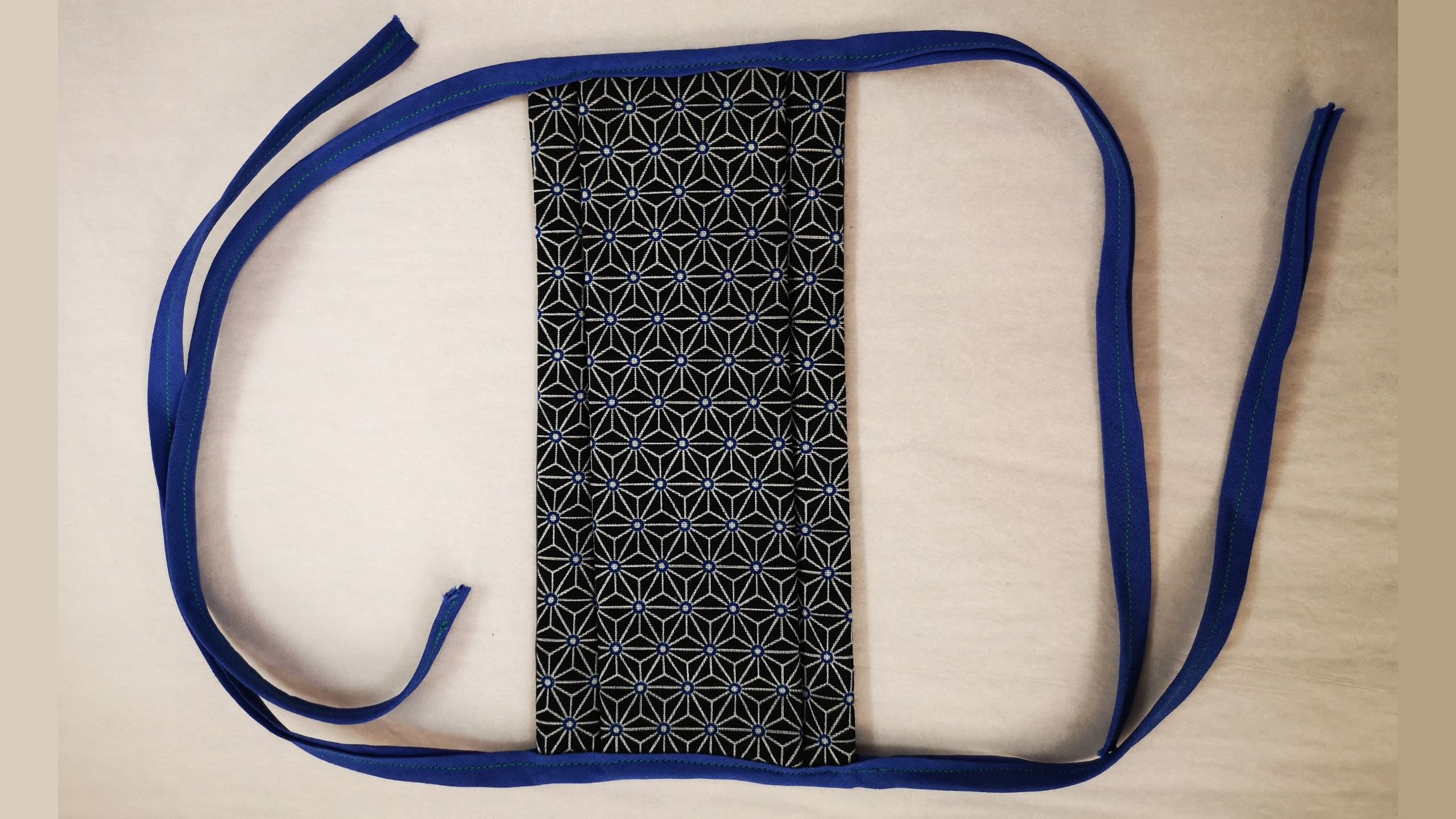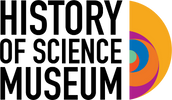On the sidelines
Hearing the pandemic's quiet voices

While Oxford University's medical teams worked flat out on the vaccine, the remaining staff carried on as best they could by teaching, researching, offering cultural spaces to enjoy online — or going on furlough.
Experience the fears, frustrations — and fortitude — felt from the sidelines as our colleagues battled to free the world from lockdown.
Masks mean Freedom!

An anonymous Oxford University staff member — who had to shield for much of the pandemic — donated a disposable face covering to our COVID-19 collection.
Face coverings meant protection.
And yet, once masks were no longer mandatory — and worn less often — they came to symbolise the public's perceived lack of concern for 'vulnerable' people like them.
During the first lockdown — when people wore masks and offered support to people shielding — the donor felt that disabled people “glimpsed inclusivity”.
And then "people started acting irresponsibly again”.
The mask (or lack of one) symbolises the donor’s loss of faith in the goodness of humanity — and the lack of lessons learnt from the pandemic.
Their handwritten note reads:
“Where you see a mask and restriction, I see FREEDOM.
"Freedom to be a part of society, to have a social life and work in an office or the NHS without fear.
"What is a sniffle in you is a full blown chest infection in me — or worse.
"I am young. I am your doctor/teacher/delivery driver. I am not a drain on society.
"I am not 'vulnerable', but my immune system does not work properly. Up to 1 in 20 people have an immune system problem and the most inclusive thing you can do is wear a mask.
"When did the discussion change from public health to personal gain? Vaccines + masks have always been public health policies as they work at a population level.
"This is why diseases like polio have been eradicated. By changing the discussion to personal choice, we completely miss the point!
"Where you see a mask, I see FREEDOM AND A SIGN THAT YOU WELCOME MY PRESENCE IN SOCIETY.”
Disposable face covering (Inv: 18507)

The "Worried Well"

An anonymous Oxford University staff member — who had a prescription for hydroxychloroquine — donated this empty medicine box.
Hydroxychloroquine is included on the World Health Organization (WHO) List of Essential Medicines.
But during the early months of the pandemic, rumours started circulating in the media that taking hydroychloroquine might prevent COVID-19 infection.
The staff member's hand-written note reads:
"Hydroxychloroquine was developed as a treatment for malaria and is now used for the treatment of several rheumatological diseases.
"Due to fake news stories and the 'worried well', many of us couldn’t get hold of medicine we need to control our disease at the start of the pandemic, causing unnecessary suffering."
It shows how desperate people were for medication which might prevent, treat or cure COVID-19 — and the impact the media could have on the life during the pandemic.
Hydroxychloroquine box and handwritten note (Inv 18506)

Voices of Protest

We're rightly proud of Oxford University's contribution to the pandemic response.
But while we celebrate that hard work and success, we also need to acknowledge the disappointed — and angry — voices.
In November 2021, a member of our team found this poster just outside the Museum on the Wicket Gate which leads into the Sheldonian Yard.
Part of the note reads:
"Ever get the feeling you've been
CHEATED?"
Whether for or against the vaccination programme, we were all bound together by the same feelings of fear and frustration.
Anti-vaccine poster, by unknown, Oxford, November 2021 (Inv 18496)

Finding Peace in Creativity

In June 2020, when PPE was in short supply.
This is one of many fabric face coverings Mathilde Daussy-Renaudin handmade for her co-workers at the History of Science Museum (HSM).
"I made all the masks for HSM in June 2020.
"I finished them on the 29th. I remember having so much trouble to focus on anything, and being so worried about my work.
"COVID hit just six months in my PhD — it was scary, I felt helpless and I had trouble finding meaning in things.
"As national lockdown eased in June, and some of the
teams could go back in the (still closed) museum, masks were needed.
"But there was shortages everywhere — PPE masks and surgical masks were unavailable. So I offered to make masks for the Museum team. It helped a great deal with my feeling of helplessness, and it was easy to make at home since I always have so much leftover fabric (I sew a lot of clothes).
"There was also a shortage of elastic at the time (I remember they could not be shipped before mid-July, on any website, and I could not find any in the stores that were open), so I had
the idea to use bias binding to tie around the head to help masks stay in place.
"I think I made just a little less than 100 masks in June 2020. Some were for my family and friends, but the majority was donated to the museum.
"Later, I continued to make more masks with elastic. In the middle of 2020, during the shortage, fabric masks were seen as protective enough, and they can be re-used many times, so they are eco-friendly.
"Of course later in the pandemic, the use of single-use surgical masks or PPE masks is encouraged, because they are more protective.
"Making the masks, I always had in mind the safety of those who will wear them. So I read recommendations from European and French medical institutions, particularly the AFNOR norms. I had to choose cotton fabric with a certain thread count, and a certain tightness. And I made sure there was at least two layers of fabric for each mask.
"I followed a square pattern to cut and fold the fabric. It is overall very simple, much more simple than the clothes I use to make.
"My husband Victor also helped with the cutting, folding
and pinning. I then sewed the masks with my sewing machine, and it felt very peaceful and took my mind off of things."
Mathilde Daussy-Renaudin is a post-graduate researcher and History of Science Museum team member
Handmade face covering of black patterned cotton with blue tie straps
(Inv 18497)

As the world moves forward into the hustle and bustle of 'normal' life, we are all tackling new challenges, opportunities — and crises.
Has the pandemic experience really shown us the value of listening to the quieter voices in the maelstrom of everyday life?

